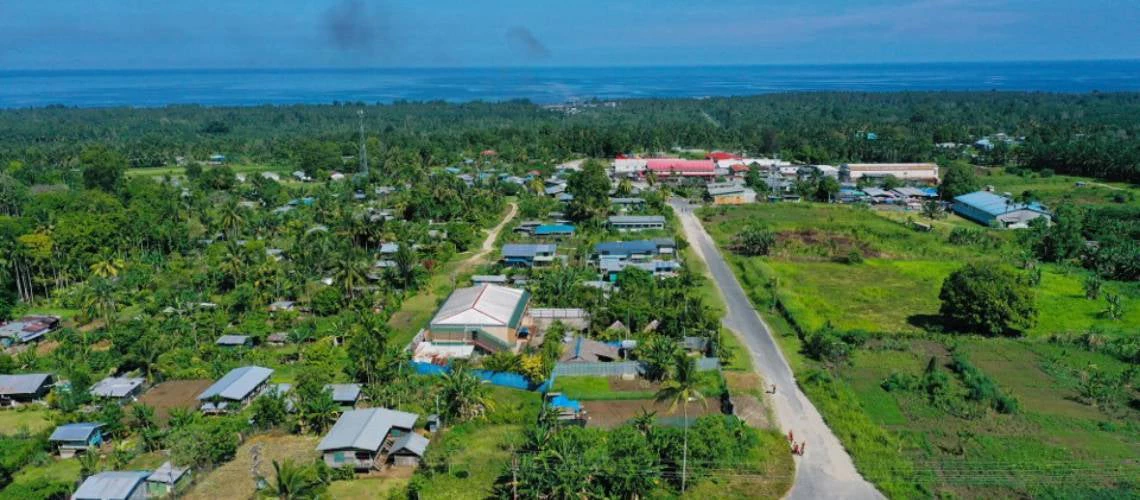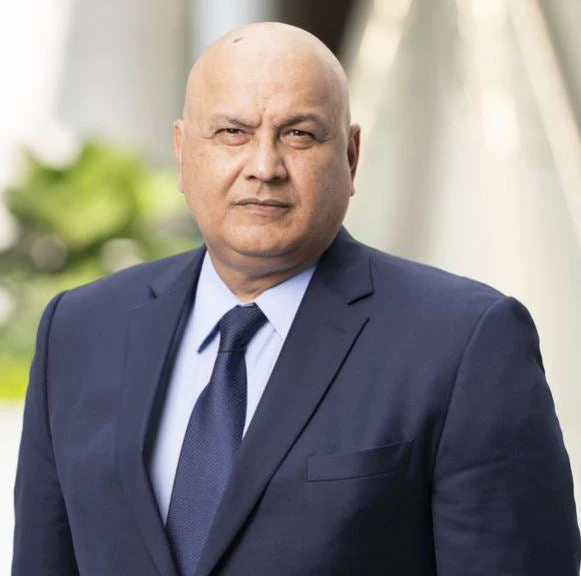 Access to clean water remains a challenge for remote town of Bialla, Papua New Guinea.
Access to clean water remains a challenge for remote town of Bialla, Papua New Guinea.
Pacific vulnerability
The member states of the Pacific vary greatly; from Papua New Guinea—the world’s third largest island country—to Tuvalu and Nauru, with just 11,000 inhabitants each; to Kiribati, one of the most geographically dispersed countries in the world—consisting of 33 coral atolls spread over an area larger than India.
These small island states are diverse, but they share similar challenges. Their extreme remoteness and environmental fragility make them uniquely vulnerable to resource scarcity and extreme weather, including tropical cyclones, volcanic activity, earthquakes, droughts, and flooding. This fragility is exacerbated by climate change, which brings with it a new threat: rising sea levels.
At the same time, the region is also dealing with rapidly growing populations, limited resources, and a lack of sustainable water resource management and water and sanitation services—often complicated by complex governance arrangements. All of these factors affect the Pacific nations’ ability to access clean water and sanitation, which is crucial for health and development.
Working together for change
In this context the World Bank administered multi donor trust fund Global Water Security and Sanitation Partnership (GWSP), through its Water Global Practice, is partnering with the Australian Department of Foreign Affairs and Trade (DFAT) to support effective and sustainable natural resource and water management in the Pacific.
This partnership has helped accelerate dialogue on the challenges and opportunities in the region. As a result, the World Bank has been able to provide high-quality analytical support and funding to Pacific countries, leading to a number of new water and sanitation projects and investments in the Pacific, as well as improved policy, project design, capacity and financial resources.
Some examples of this partnership in action are highlighted below.
Impact in action
Kiribati is one of the smallest, most dispersed countries in the world. Half of its citizens live on hard-to-reach outer islands and the other half live on the main island of South Tarawa; one of the most densely populated areas in the Pacific. The country is extremely vulnerable to rising sea levels, increased water salination, and unpredictable weather patterns, with limited resources for government services in the outer islands.
The GWSP has provided critical assistance in exploring water security and sanitation service options for South Tarawa, which has uniquely fragile water resources. The 2018 study helped to generate funding of more than $58 million, with $15 million from the World Bank. Recent GWSP support in 2021 included gathering input from several experts to update the South Tarawa sanitation roadmap, which guides investments and reforms in the sanitation sector over the next 20 years.
In Papua New Guinea, one of the most in-need countries in the Pacific, access to water and sanitation services is low, and has steadily decreased over the past two decades. With World Bank support, the country drafted and adopted its first national WASH policy in 2015. The GWSP has supported the country’s implementation of the policy, which has led to a $70 million World Bank funded project which began in February 2017.
Neighboring Solomon Islands is rapidly urbanizing, and the population of the capital, Honiara, is expected to triple in just 30 years. To help inform decision-making around how best to ensure this growing population is served with adequate water and sanitation, the GWSP funded a study on water and sanitation service delivery options for settlement communities—which are home to more than 30 percent of Honiara’s population. The results have informed investments in a program focused on WASH services in settlements totaling $82.3 million, which includes World Bank support of $15 million
Partnership with purpose
Building resilience in the Pacific’s water and sanitation sector is an urgent priority as the region works to recover from the COVID-19 pandemic and get back on track to achieve its Sustainable Development Goals. Partnerships such as the one with DFAT ensure that the World Bank can continue to support the Pacific in this important work.
Related Links:
- The World Bank in Pacific Islands
- $20m Climate Adaption Support for Kiribati’s Outer Islands
- Safer, Cleaner Water and Sanitation for Solomon Islanders
- Kiribati: Spirit of Dedication Increases Community’s Resilience towards Climate Change
- Papua New Guinea: Clean Water Access to End the Walk for Water for Women and Girls



Join the Conversation